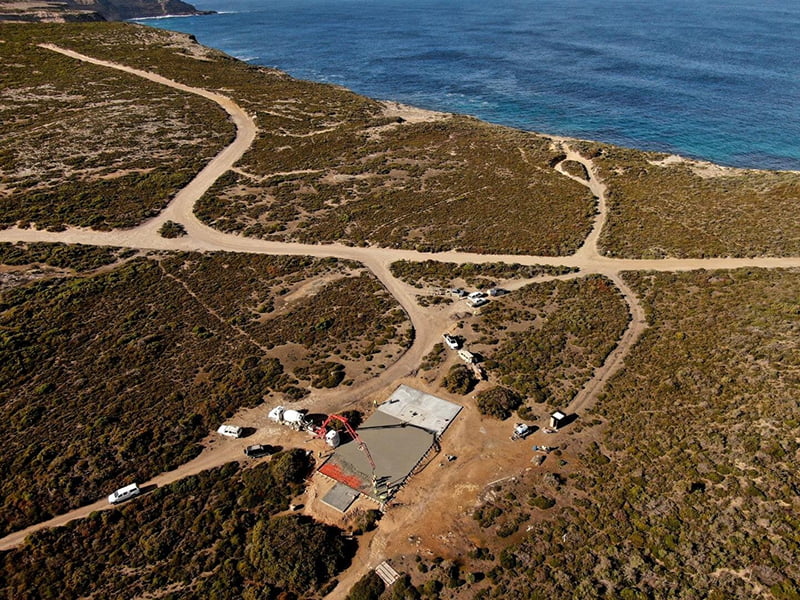Adelaide-based Southern Launch has secured federal environmental approval to launch rockets near endangered species in South Australia subject to restrictions.
Environment minister Tanya Plibersek signed off on the proposal that has been under consideration for more than three years on Friday after pushing back a decision on several occasions in recent months.
The decision, published late on Tuesday, garnered immediate condemnation from environmental groups, which have labelled the ruling “incredibly disappointing” for biodiversity.
But construction of the Whalers Way Orbital Launch Complex cannot get underway until separate approval from South Australian planning minister Nick Champion is received.

The launch complex, located on the Eyre Peninsula on private land near marine and conservation parks, will have an annual launch limit of 36 orbital rockets, six sub-orbital rockets and six rockets outside of daylight hours.
The Southern Launch site is also not permitted to test more than 10 rocket engines in any one year, is subject to noise limits, and must not leave debris in an Australian Marine Park without further approval from a park director.
Southern Launch will construct two launch pads that enable satellites to be launched into polar and sun-synchronous orbits. Access to these orbit regions is useful for earth observation, weather and climate change monitoring.
Construction of the launch complex is still subject to approval from Mr Champion who is considering the State Planning Commission’s assessment report, expected imminently.
Southern Launch chief executive Lloyd Damp said he “is confident the SA government recognises the significant benefits that an orbital launch facility will bring to our state”.
“South Australia is home to an incredible local space industry and the approval for the Whalers Way Orbital Launch Complex is the final piece of the puzzle in helping our state emerge as a key player in the global space industry which is set to be worth $1.8 trillion by 2035,” Mr Damp said.
The proposed orbital launch complex was first referred under the Environment Protection and Biodiversity Conservation (EPBC) Act in August 2021, but was declared a major development by the South Australian government in August 2019.
The launch complex is designated as a controlled action under the EPBC Act because it affects threatened species and communities, migratory species and a Commonwealth marine area.
Launches will also be grounded if the Southern Right Whale or Blue Whale are in the vicinity of the site and limits have been placed on the amount of habitat that can be cleared.
The Australian Conservation Foundation’s nature campaigner Darcie Carruthers has, however, slammed the decision, saying it “flies in the face of the government’s commitment to zero new extinctions”.
Mr Carruthers said an important population of the only 750 Eyre Peninsula Southern Emu-wrens left in existence are “directly in the path of Whalers Way”.
“It is hard to believe a Minister for the Environment would allow habitat that has been described as ‘critical’ for the survival of an endangered species to be destroyed for rocket launch pads, blast walls and bunkers,” Mr Carruthers added.
Ms Plibersek has approved conservation advice made in mid-2023 that described “all known sites” where the Eyre Peninsula Southern Emu-wren occurs as habitat critical to its survival, although not formally under the EPBC Act.
Mr Carruthers said the approval for the orbital complex demonstrates that “Australia’s nature laws truly are broken and powerless to rein in businesses like Southern Launch from bulldozing the bush”.
He said the construction, shock waves, noise pollution and potential rocket fuel fires could also affect the endangered Mallee Whipbird, Australian Sea Lions, and Southern Right Whales.
Mr Damp said the company has “invested significant amounts of time and money to understand the natural environment we will be operating in”.
“We are looking forward to working closely with environmental experts to implement the first management plan for this private property and delivering a net environmental benefit for native fauna and flora found in the area,” Mr Damp said.
The launchpad operator previously had temporary approval from the Australian Space Agency to undertake a test campaign of three rocket launches to inform the development of the permanent Whalers Way Orbital Launch Complex.
However, all three of these missions, attempted between 2021 and 2022, were called off after faults were identified in the rockets.
Southern Launch will attempt Australia’s first commercial space re-entry at its Koonibba Test Range early next year, having received the first return authorisation granted under the Australia’s Space (Launches and Returns) Act 2018.
Do you know more? Contact James Riley via Email.

